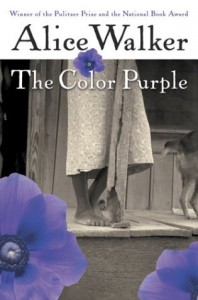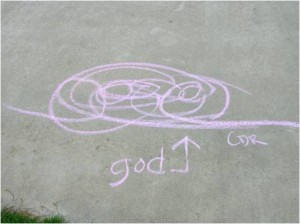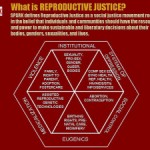 I’m teaching The Color Purple this month in Introduction to Gender and Women’s Studies. Alice Walker’s 1982 Pulitzer Prize winning novel reflects and encapsulates so many of the issues we have been learning about and discussing throughout the semester, from the intersection of race, class, and gender, to the pervasiveness of violence against women, to the complicated role that institutions like religion play in reinforcing inequality as well as becoming sources of empowerment.
I’m teaching The Color Purple this month in Introduction to Gender and Women’s Studies. Alice Walker’s 1982 Pulitzer Prize winning novel reflects and encapsulates so many of the issues we have been learning about and discussing throughout the semester, from the intersection of race, class, and gender, to the pervasiveness of violence against women, to the complicated role that institutions like religion play in reinforcing inequality as well as becoming sources of empowerment.
I always tell students that I think the single best piece of theology in all of American literature is found in Celie’s letter that starts out, “Dear Nettie, I don’t write to God no more. I write to you.” The conversation between Shug and Celie that follows is mere brilliance.
Here are some excerpts:
Miss Celie, You better hush. God might hear you.
Let ‘im hear me, I say. If he ever listened to poor colored women the world would be a different place, I can tell you.
In the middle of a lifetime of struggle, violation, and disappointment, Celie gradually finds ways to express her anger, here at God, eventually at Mr. _____ himself.
Celie, tell the truth, have you ever found God in church? I never did. I just found a bunch of folks hoping for him to show. Any God I ever felt in church I brought in with me. And I think all the other folks did too. They come to church to share God, not find God.
Throughout the novel, Shug is a main source of empowerment and exploration for Celie, here in terms of challenging her understanding of church and God’s presence.
Shug! I say. God wrote the bible, white folks had nothing to do with it.
How come he look just like them, then? she say. Only bigger? An a heap more hair. How come the bible just like everything else they make, all about them doing one thing and another, and all the colored folks doing is gitting cursed?
I never thought bout that.
Calling out the ways that white supremacy has come to define western Christianity is something that is basic, obvious, and eventually revolutionary.
Shug also says, plainly:
When I found out I thought God was white, and a man, I lost interest.
Images of and language for the divine matter, insofar as they reflect what a society views to be the highest, best, and most powerful. Elsewhere in the novel Walker shows this with the Olinka people and their roofleaf.
Eventually, Shug tries to explain her view and vision of God, inviting Celie’s questions:
You saying God vain? I ast.
Naw, she say. Not vain, just wanting to share a good thing. I think it pisses God off if you walk by the color purple in a field somewhere and don’t notice it.
The color purple. In my discussions about the novel, we always end up at ‘why purple?’ and consider what the color is, represents, and where it is seen in the natural world as well as in culture. Royalty. Bruises. A secondary color. Rare. I also bring in Alice Walker’s poetic definition of ‘womanist’ which of course ends:
Womanist is to feminist as purple is to lavender.
About this, there is already much written. For today, I invite your reflections and comments.












